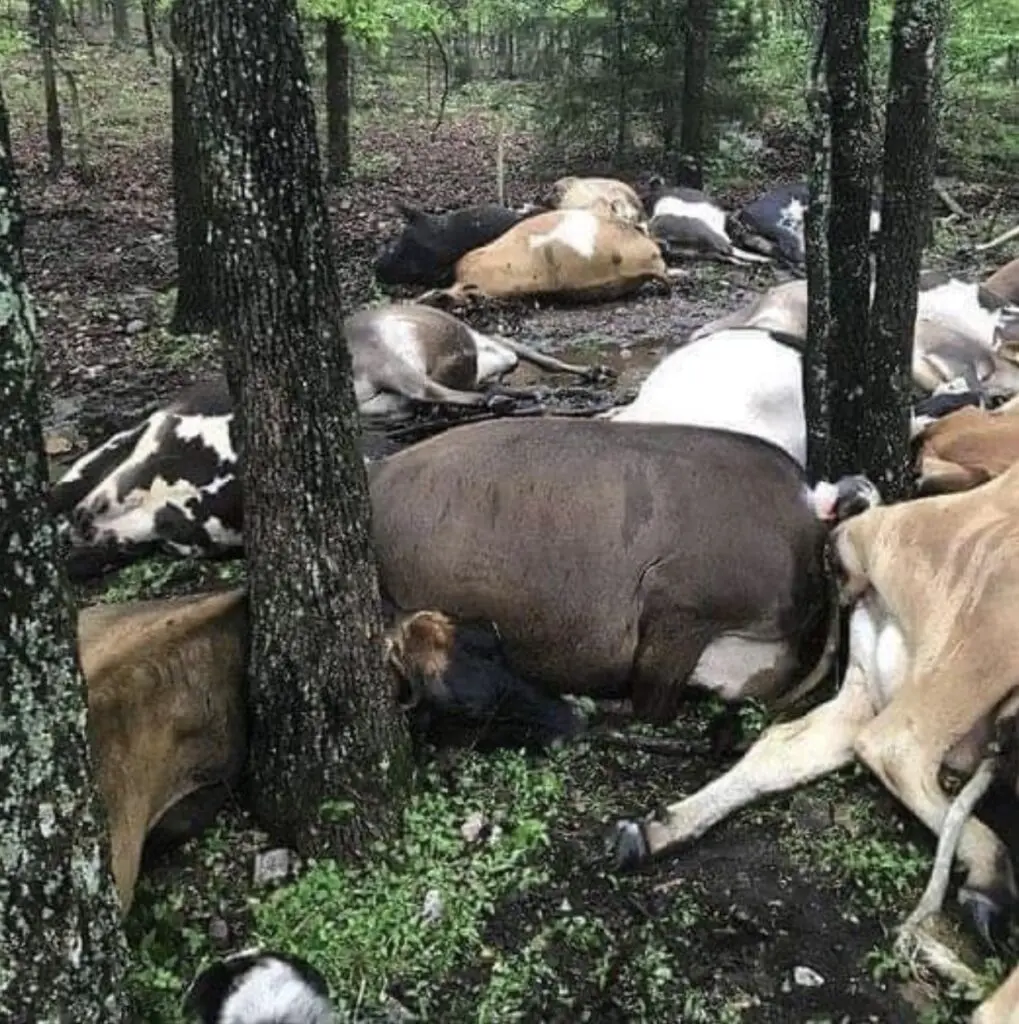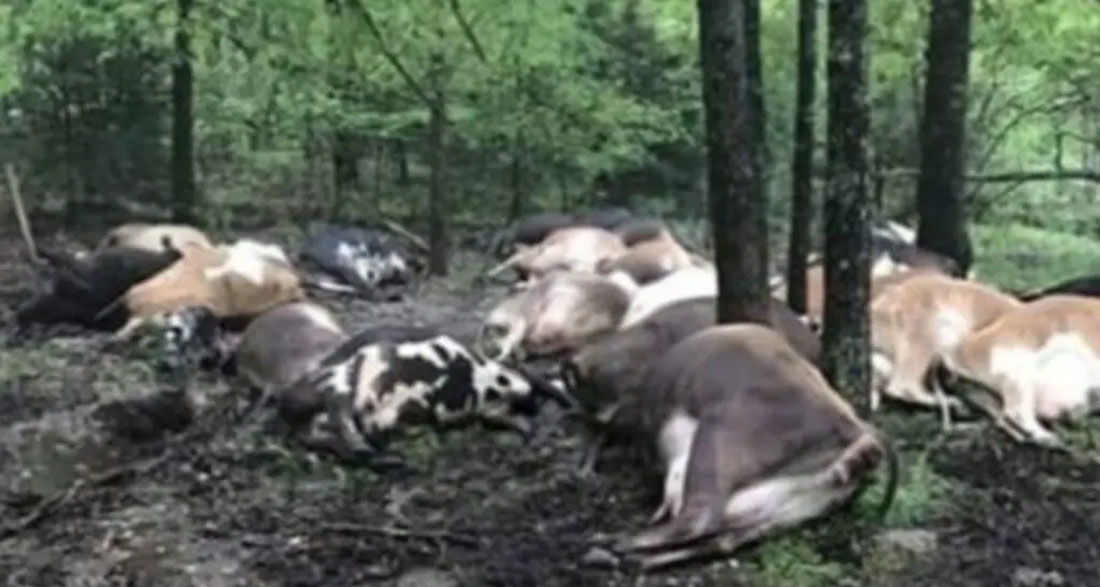In Missouri, lightning and thunderstorms are just part of the season. Recently, though, the area had been hit with severe weather and flooding, causing a lot of damage.
On a Saturday morning, farmer Jared Blackwelder and his wife Misty went about their usual routine, feeding their dairy cows. As they worked, they heard loud booms of thunder, but it didn’t worry them much. Storms were normal here, after all.
But later that day, when Jared went out to gather the cows for evening milking, his heart sank. He stopped in his tracks, staring at the field. All 32 of his cows were dead, piled on top of each other in the pasture. The sight was devastating. The field that should’ve been full of life was eerily quiet, with no movement except the fallen animals.
Stan Coday, president of the Wright County Missouri Farm Bureau, later explained, “Jared went out like any other day to bring the cows in. But what he found was something no farmer ever wants to see.”
According to CBS News, lightning strikes like this aren’t unheard of, but what made this case so extreme was the number of cows lost all at once. The local vet soon arrived and confirmed everyone’s worst fear: the cows had been killed by lightning.
The cows had likely huddled together under the trees during the storm, trying to find shelter from the rain. It was a natural instinct, but tragically, it made them an easier target for the lightning strike.
“You’re at the mercy of nature,” Coday said, shaking his head. He recalled a time when he lost a cow to lightning a few years ago. It’s a risk every farmer knows, but when it happens, it’s still a shock.

Jared, speaking to the Springfield News-Leader, was clearly heartbroken. “They’re not pets, but I’ve raised every one of them,” he said, his voice full of emotion. Dairy cows are handled twice a day, every day. Losing them is not just a financial loss; it’s personal.
And the financial blow? It was massive. Jared estimated the loss to be around $60,000. Each of those certified organic cows was worth between $2,000 and $2,500. He had insurance, but he wasn’t sure if it would cover such a huge loss. “I don’t know what we’ll do if it doesn’t,” he admitted.
Stan Coday pointed out that most farmers don’t have insurance for their livestock. “Losing a cow means losing everything,” he said.
Some neighbors, concerned about the waste, asked if the meat from the cows could at least be used. Coday, who also breeds beef cows, had to break the news that it wasn’t possible. “The cows were already dead for several hours by the time they were found,” he explained. “That makes the meat unsafe for people to eat.”
Coday also mentioned that most farmers in Missouri don’t have separate barns for their cows because the weather is usually mild. But this storm had shown just how unpredictable nature could be.
For Jared and Misty, the loss was more than just a financial hit. It was a painful reminder of how quickly things can change, how one moment can turn everything upside down. Now, they faced the tough task of moving forward after the storm had taken so much from them.

